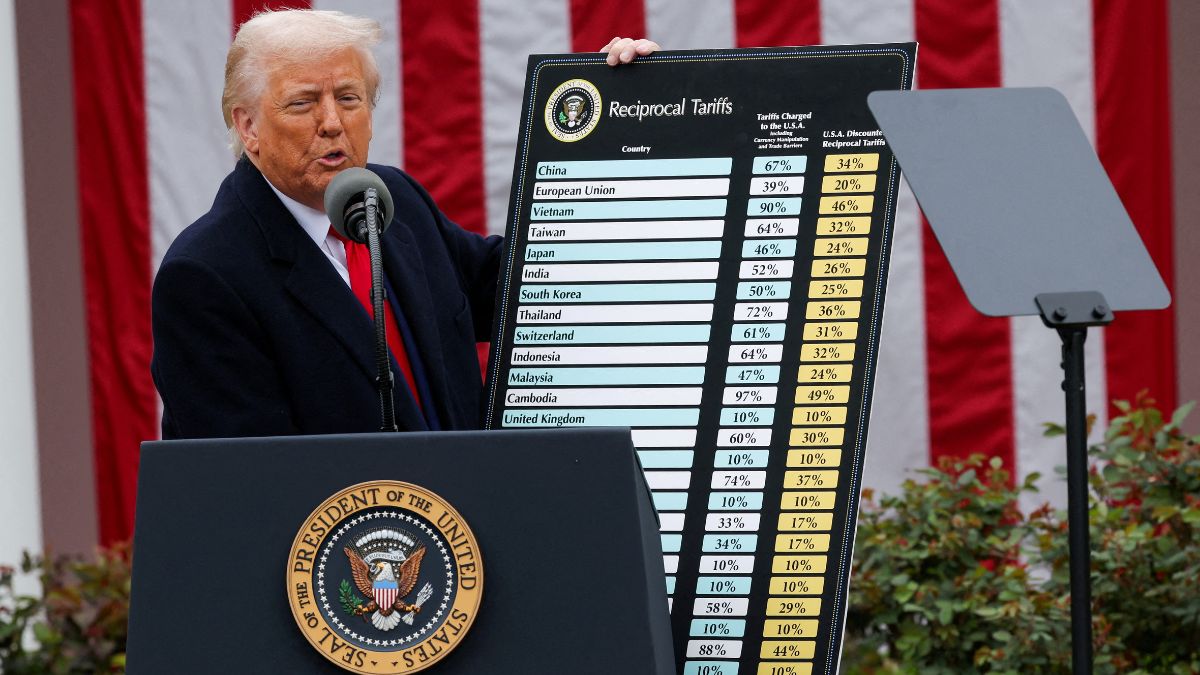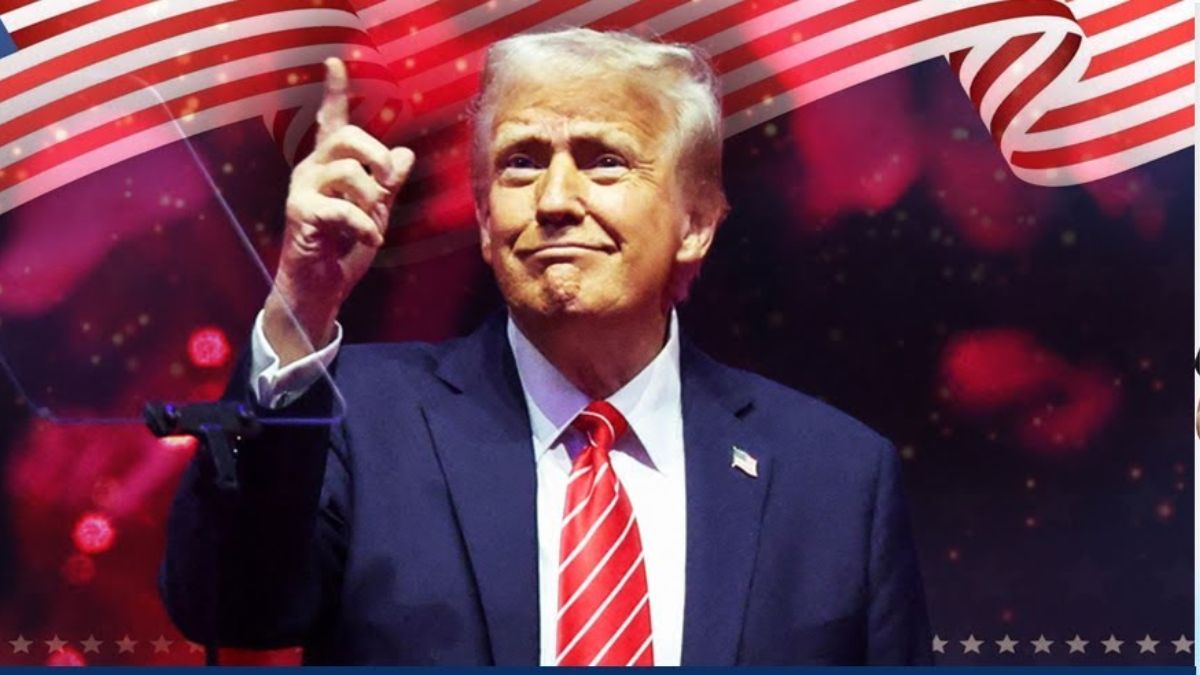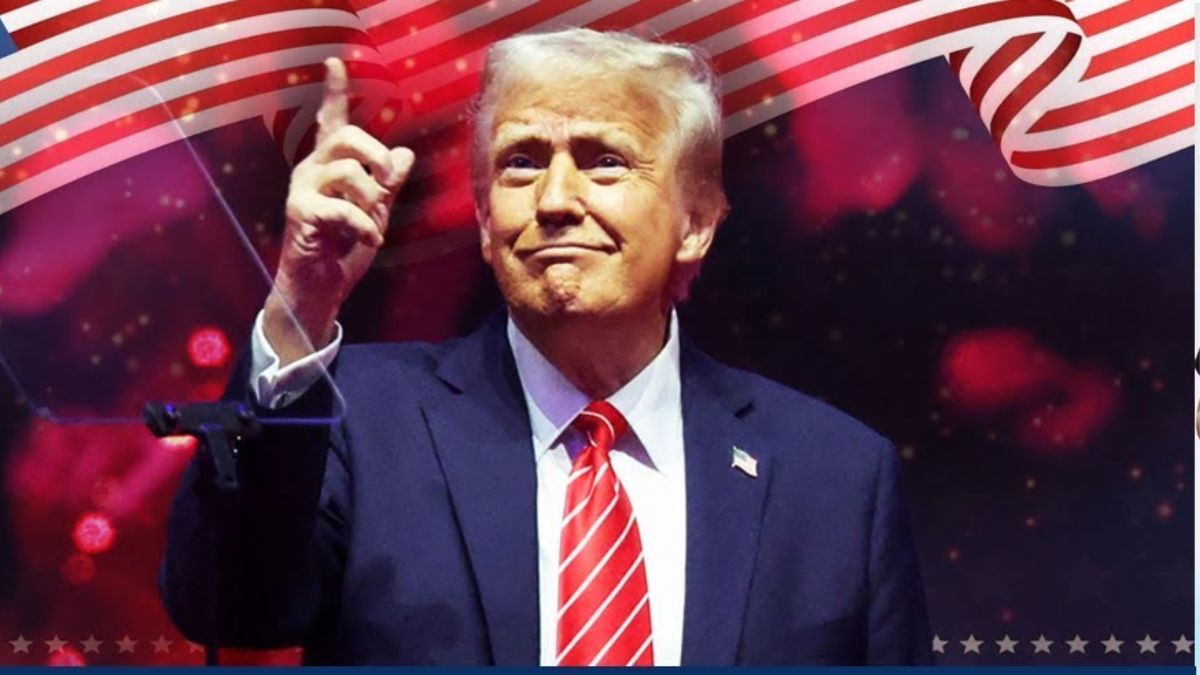A term first used by Financial Times columnist Robert Armstrong, the “Taco” trade has been catching attention on Wall Street.
But what does it mean?
It stands for “Trump Always Chickens Out” and is meant as a dig at US President Donald Trump.
ALSO READ | US court blocks Trump’s tariffs: What does it mean for global trade, markets?
Now, the Republican leader has responded to it.
But what is the ‘Taco’ trade jibe all about? How did Trump respond, and why is this acronym being used for him?
Here’s a look at the answers to these questions and more.
Explained: The ‘Taco’ trade jibe at Donald Trump and what it means
Simply put, the “Taco” trade refers to Donald Trump’s pattern of announcing steep import taxes, only to backtrack later.
The phrase was coined by Financial Times columnist Robert Armstrong and stands for “Trump Always Chickens Out.”
The pattern is simple. Markets usually fall when Trump makes threats to raise import duties. But when he eases off, they bounce back.
Put another way, investors are learning not to panic at every new tariff announcement, as Trump often reverses course, leading to a market rebound.
Notably, since April 2, the day Trump called "Liberation Day", he has often stepped back from those initial plans.
In fact, the Trump administration has made over 50 changes to tariff policies since his inauguration on January 20, according to a review by The Washington Post. Many of those were reversed not long after being announced.
Impact Shorts
More ShortsOne example: Trump pushed tariffs on Chinese goods up to 145%, only to reduce them to 30% during a 90-day negotiation period.
Just last week, he warned of a 50% tariff on European Union products starting in June, but then postponed it to July 9 to allow time for talks, keeping the existing 10% duty in place for now.
The same stop-start approach has been seen with tariffs on cars, electronics, and broader import duties based on trade deficits with various countries.
Just hours after those tariffs took effect, Trump paused them for 90 days for all countries except China. He said investors were becoming “yippy yappy”, a sign that markets, especially bonds, were not reacting well.
Each time, the stock market reacted with sharp falls after Trump’s announcements, followed by a bounce once he changed his position. Investors viewed the tariffs as damaging to growth and company profits, but welcomed the pullbacks.
ALSO READ | Trump’s crackdown on foreign students at US universities may hurt India and China the most. Here’s why
How Trump reacted to ‘Taco’ trade jibe
Donald Trump said that he first heard about the “Taco” trade term on Wednesday when a reporter asked him to respond.
“You call that chickening out?” Trump replied.
“It’s called negotiation.”
Clearly not pleased with the term, Trump rejected the idea that backing off steep tariff threats made him a “chicken.”
“I chicken out? Oh, I’ve never heard that. You mean because I reduced China from 145% that I set down to 100 and then to another number?” he said, referring to the tariff rates he had placed on Chinese imports.
Trump explained that he agreed to delay the move after EU leaders reached out and asked, “Please, let’s meet right now.”
“It’s called negotiation,” he repeated, saying he starts with a “ridiculous high number” and then lowers it “a little bit, you know, a little bit” until the number becomes more acceptable.
He also told the reporter not to repeat the question. “Don’t ever say what you said,” Trump said. “To me, that’s the nastiest question.”
According to Trump, EU officials would not be willing to talk without the 50% tariff in place. He added that his usual criticism is being “too tough,” not too soft.
What’s the latest in Trump’s tariff war?
On Wednesday, the US Court of International Trade in New York blocked Trump’s sweeping plan to impose heavy taxes on imports from nearly every country.
A panel of three judges ruled that Trump went beyond his powers when he used the 1977 International Emergency Economic Powers Act to declare a national emergency as a reason for the broad tariffs.
Notably, these tariffs were a sharp shift from decades of US trade policy. They disrupted global trade, shook financial markets, and raised concerns about rising prices and a possible recession in the US and beyond.
Trump’s team argued that courts had supported former President Richard Nixon’s use of emergency tariff powers in 1971. They also claimed that only Congress, not the courts, should decide whether the president’s reason for declaring an emergency fits within the law.
The court’s ruling blocks the new tariffs Trump placed last month on almost all US trading partners, as well as earlier levies on China, Mexico and Canada.
However, the decision does not affect other Trump-era tariffs, such as those on steel, aluminium and cars, which were enacted under a different law. That law required a formal review by the Commerce Department and did not allow the president to act alone.
With inputs from agencies


)

)
)
)
)
)
)
)
)



